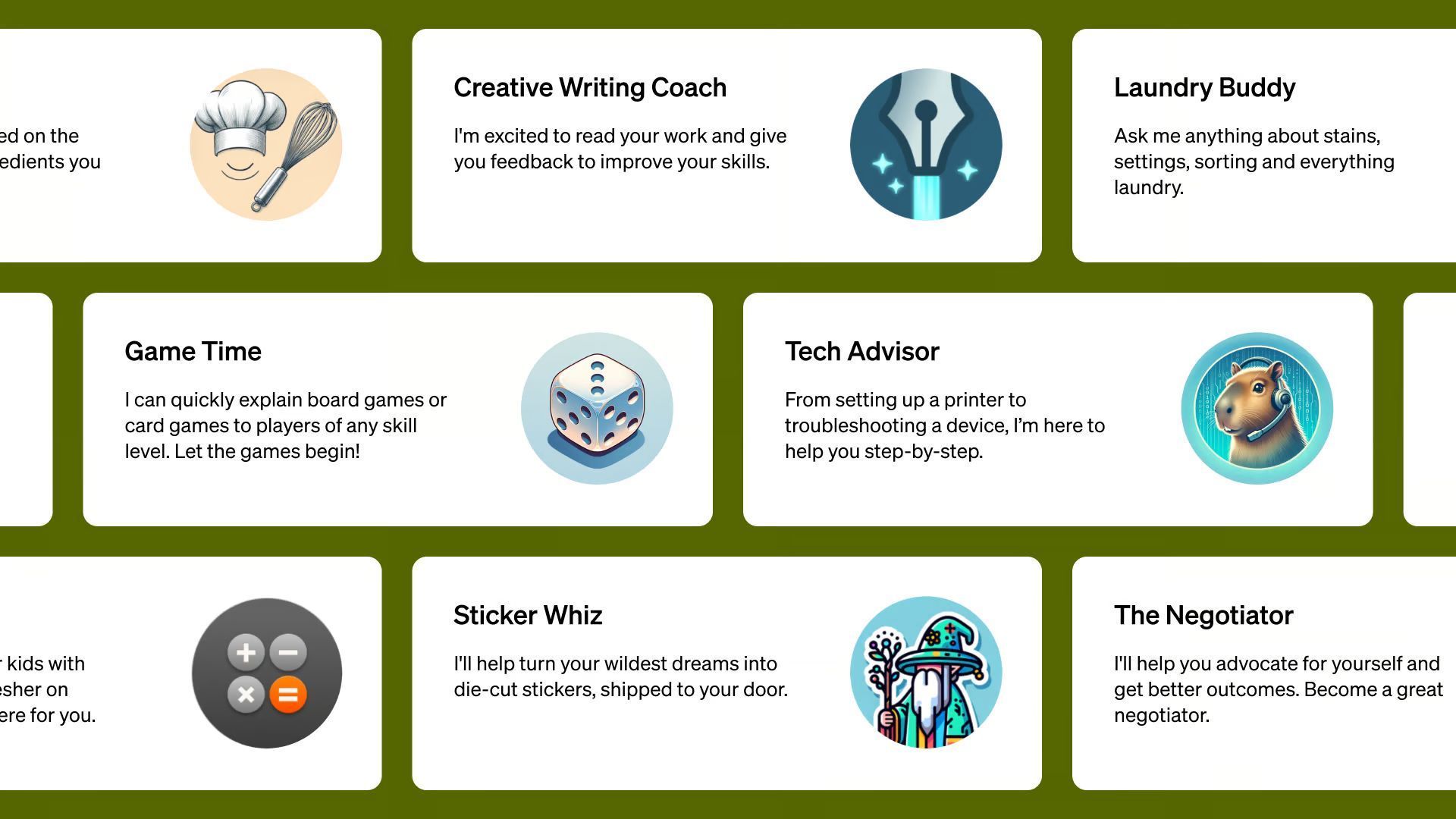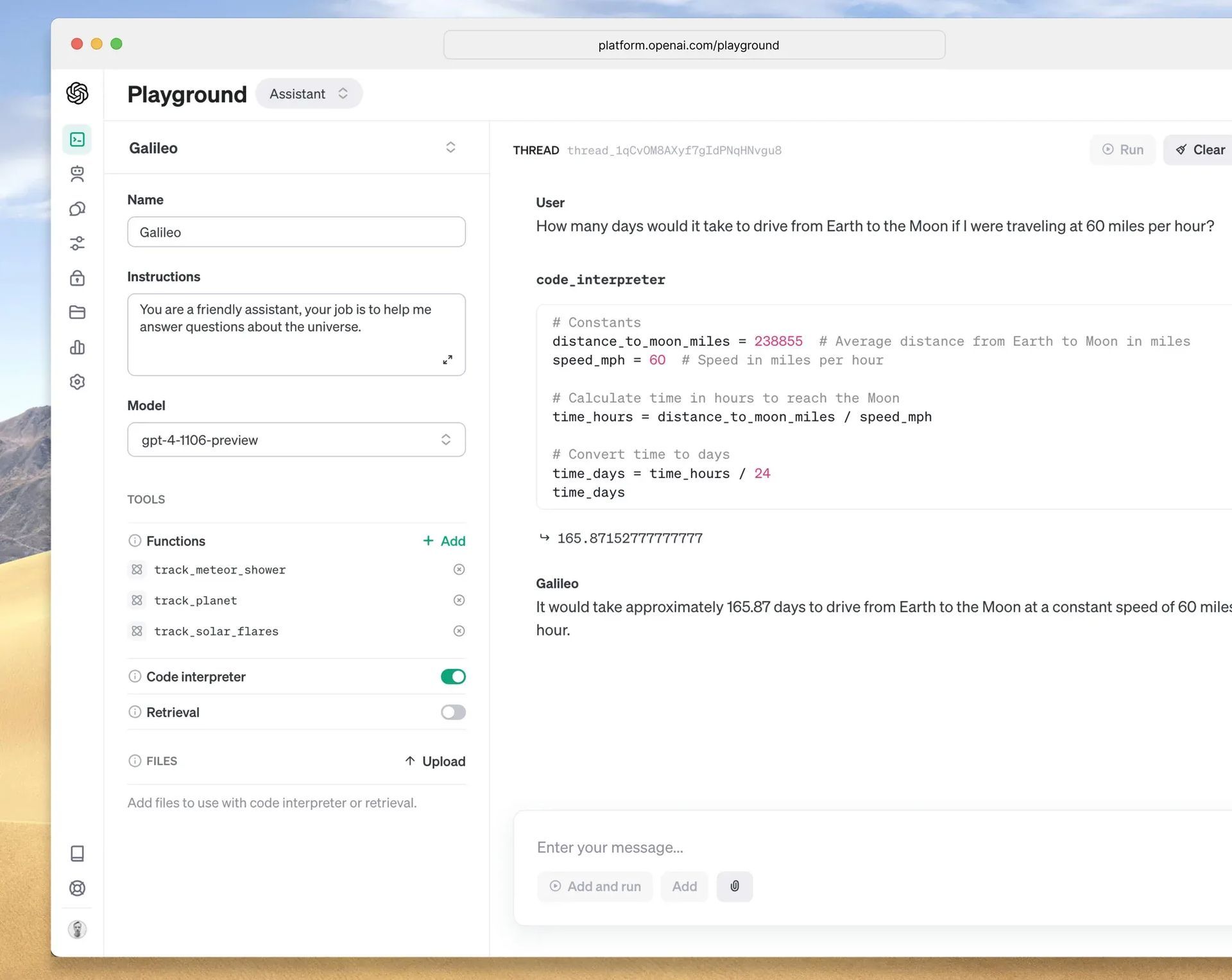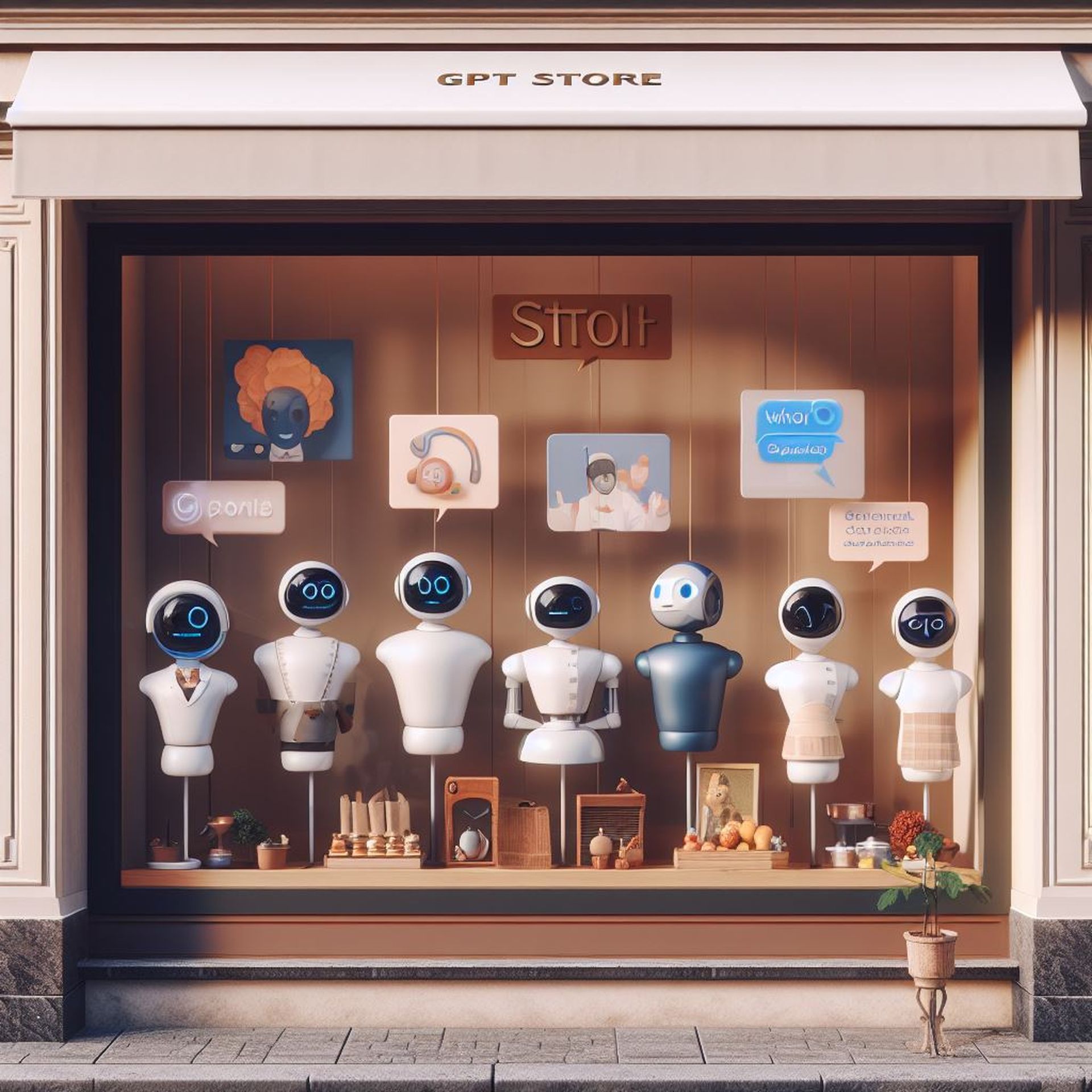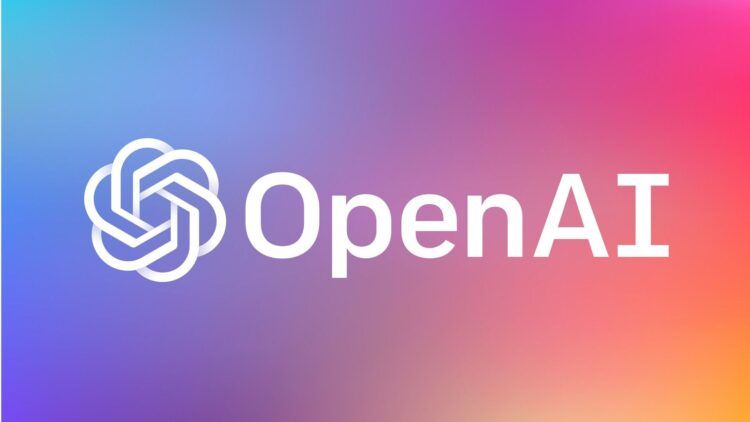OpenAI recently introduced custom GPTs, a game-changer for ChatGPT enthusiasts looking to personalize the AI assistant for specific roles or purposes.
Users will have the option to create their own custom GPT roles, and OpenAI is gearing up to launch a GPT Store later this month, in which they plan to share profits with the creators of these unique roles. Let’s talk specifics.
What to expect from Custom GPTs, GPTstore, and GPT builder?
Since the debut of ChatGPT, there’s been a growing demand for more customization options to suit individual user needs. While OpenAI took a step in the right direction with Custom Instructions in July, the community has persistently asked for even more control over the customization process. In our tests, we found that switching between different roles wasn’t as seamless as one might expect, often requiring the somewhat clunky process of copying and pasting text from separate documents. The new GPT builder aims to streamline and automate these transitions, significantly improving the user experience.

The sneak peek of the Custom GPTs interface provided by OpenAI showcased a lineup of specialized AI assistants like “Writing Coach,” “Sous Chef,” “Math Mentor,” and “Sticker Whiz.” These GPTs are designed to assist with a range of tasks, from offering writing advice and cooking tips to helping with homework and creating custom stickers.
In the ChatGPT community on social media, members frequently shared prompts or Custom Instructions that proved effective for specific purposes, like giving cooking tips or taking on the role of a dungeon master in a table-top RPG. In a similar vein, sharing GPTs will now be seamlessly integrated with the GPT Store, allowing well-crafted roles to be used by others. OpenAI has mentioned that the Store will feature leaderboards for popular GPTs, and in the future, GPT creators will have the opportunity to earn money based on how many people use their creations.
GPT Builder will let you build AI with AI
OpenAI is elevating user customization with the introduction of the GPT Builder. This feature empowers users to directly interact with a conversational AI model, providing the ability to precisely define the knowledge scope and behavior of an AI assistant.
Customizing GPTs with specific prompts can have a profound impact on the behavior and responses of the AI language model. However, navigating this customization process can be intricate. To simplify the process, OpenAI is enabling ChatGPT to assist users in creating their own unique GPT models.
“Anyone can easily build their own GPT—no coding is required. You can make them for yourself, just for your company’s internal use, or for everyone. Creating one is as easy as starting a conversation, giving it instructions and extra knowledge, and picking what it can do, like searching the web, making images or analyzing data”
-OpenAI
Custom GPTs have been crafted to be incredibly versatile tools for developers. OpenAI has enabled these custom assistants with API access, allowing them to carry out a diverse array of tasks. This means that Custom GPTs can go beyond just generating images with the help of DALL-E 3. They also have the ability to engage with the real world, much like how ChatGPT Plugins operate.

OpenAI has customized offerings for Enterprise clients, giving them the opportunity to use GPTs exclusively for internal company purposes. This ensures that interactions stay private and confidential. OpenAI upholds strict privacy standards, ensuring that conversations with GPTs are not accessible to the creators of the GPTs.
When a GPT incorporates third-party APIs, it’s ultimately up to the user to determine if any data is sent to those services. Additionally, all GPTs must adhere to OpenAI’s extensive usage policies, underscoring their dedication to deploying AI in a responsible and secure manner. This ensures that user privacy and ethical considerations are prioritized in the use of the technology.
Creators will be able to earn money in GPT Store
OpenAI’s most noteworthy announcement today was the unveiling of the GPT Store. This platform is poised to transform how Custom GPTs are distributed, providing a centralized marketplace where users can find a diverse range of specialized AI models.
Looking ahead, the GPT Store’s vision extends beyond simply sharing and obtaining these custom assistants. It also envisions the potential for creators to earn money from their innovative contributions, providing a platform for them to monetize their creations. This is an exciting prospect for both creators and users alike.
“Starting today, you can create GPTs and share them publicly. Later this month, we’re launching the GPT Store, featuring creations by verified builders. Once in the store, GPTs become searchable and may climb the leaderboards. We will also spotlight the most useful and delightful GPTs we come across in categories like productivity, education, and “just for fun”. In the coming months, you’ll also be able to earn money based on how many people are using your GPT.”
-OpenAI

Custom GPTs are poised to make a distinctive mark in the AI landscape, providing an unparalleled level of customization. The emergence of the GPT Store represents a significant shift in the marketplace, heralding a future where creativity and monetization go hand in hand. This development holds the potential to reshape how AI models are utilized and valued.
Meanwhile, OpenAI’s revelation of all these amazing improvements comes only a day after Elon Musk’s xAI challenges ChatGPT with the launch of Grok AI, which probably was timed in advance.
Also, make sure to check out GPT-4 Turbo, which is basically a better GPT for a lower price and how OpenAI Assistants API will let you build AI assistants within your own apps. They were also introduced at the OpenAI Developer Day.
Featured image credit: OpenAI





